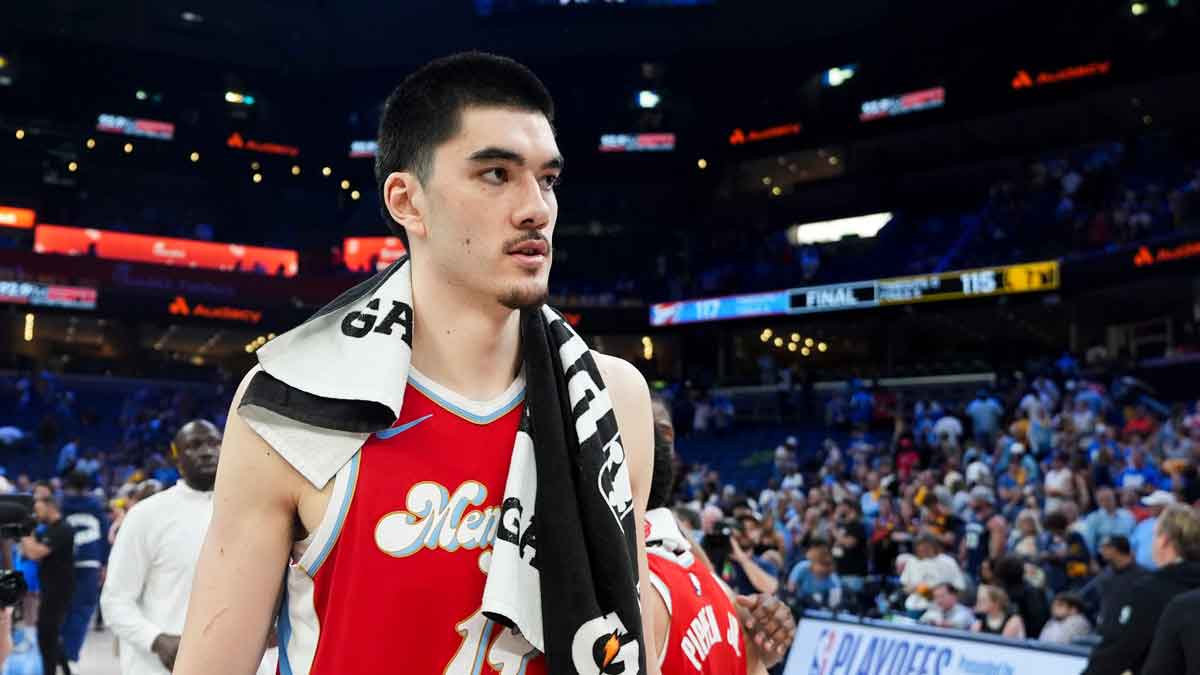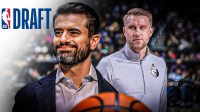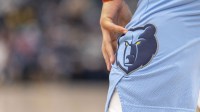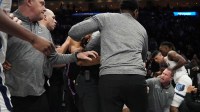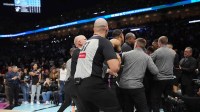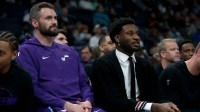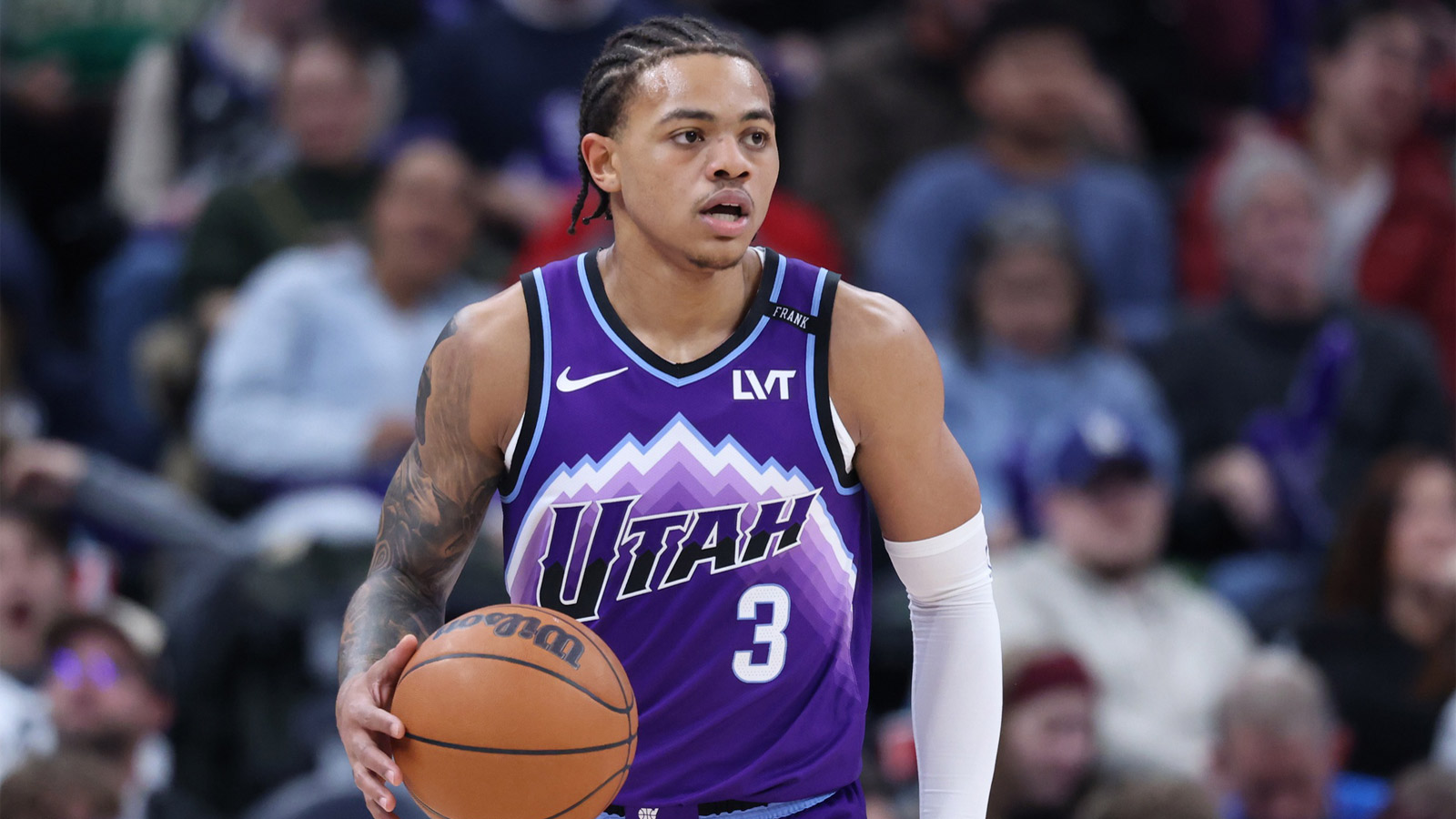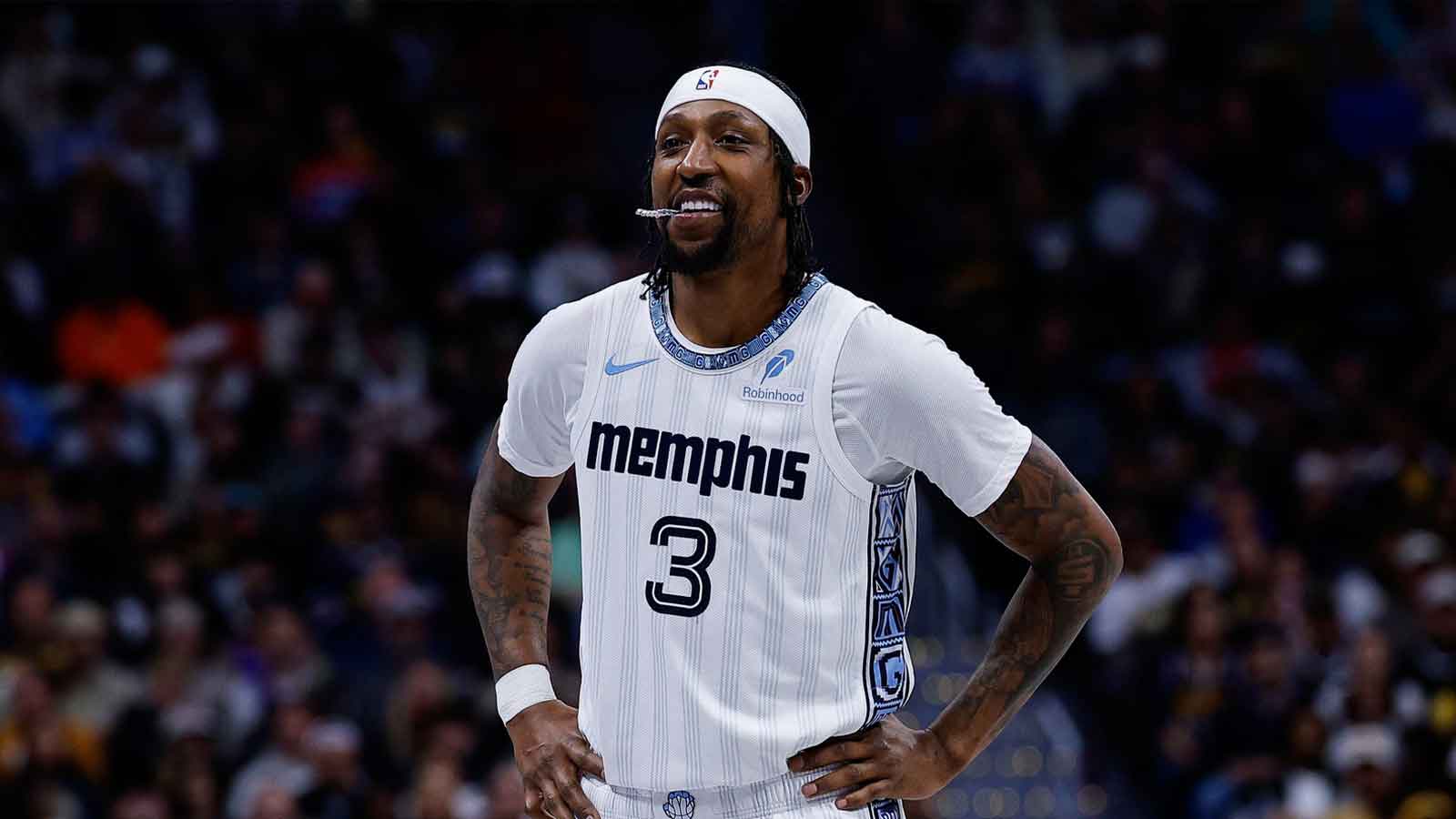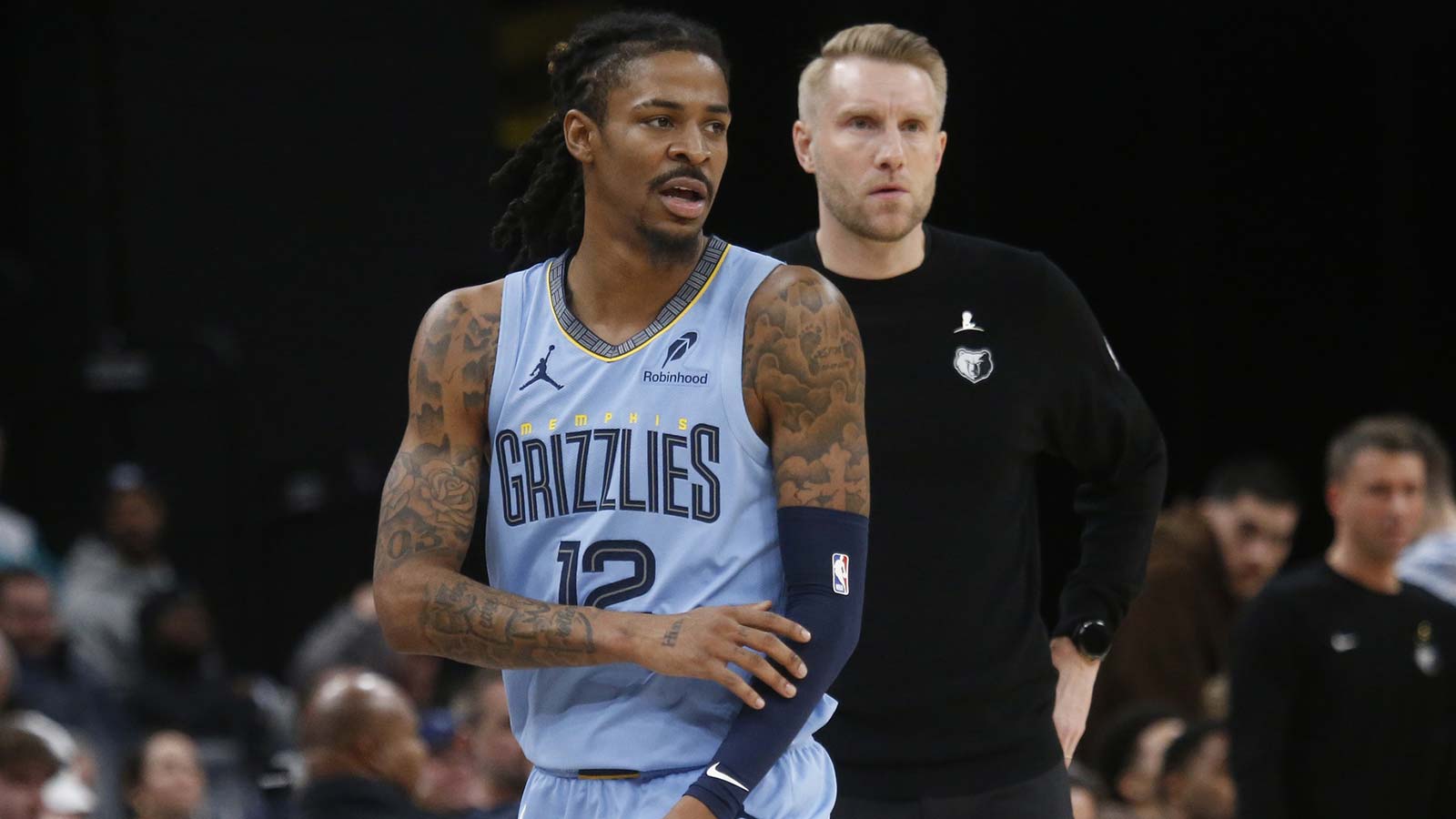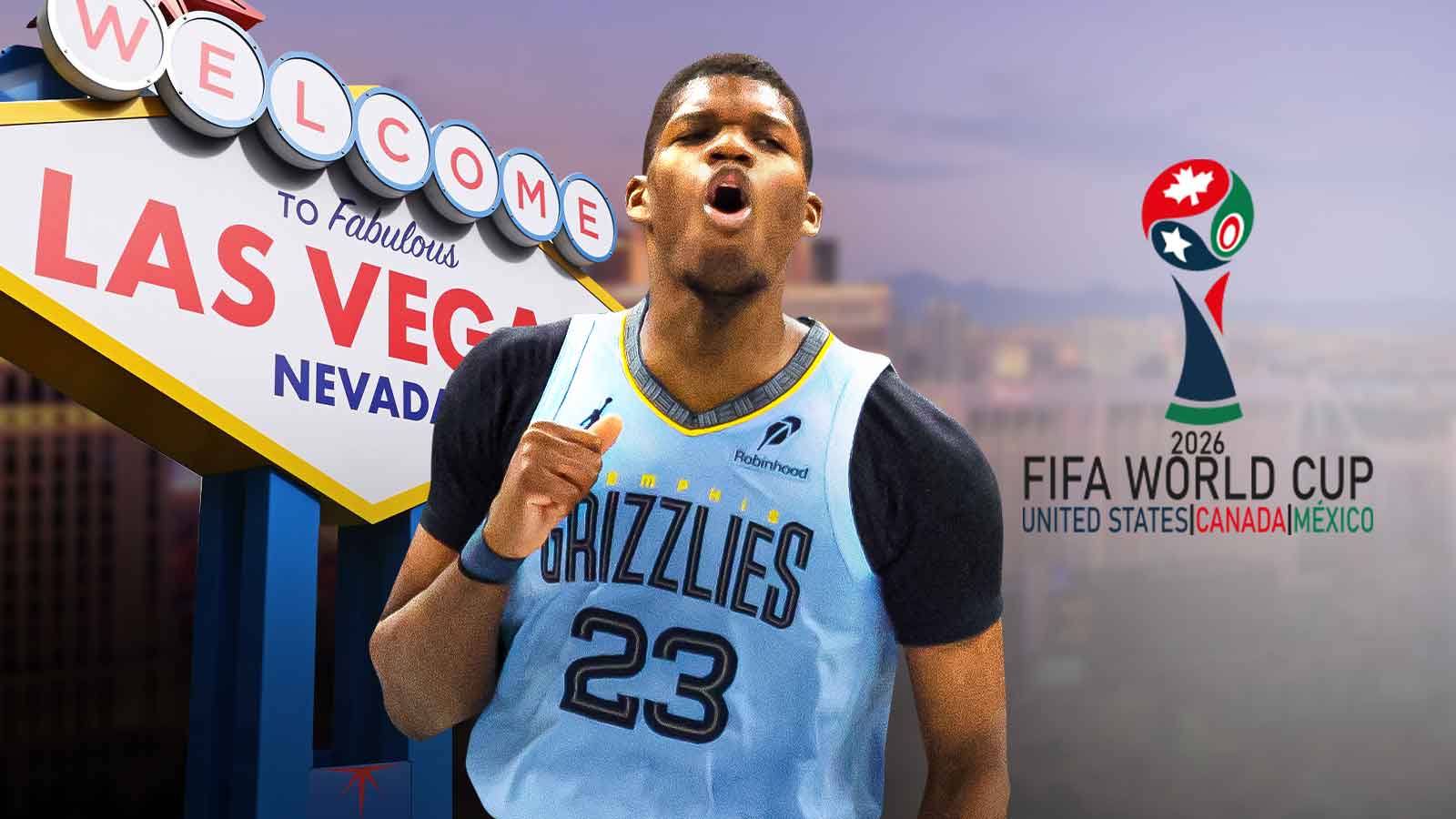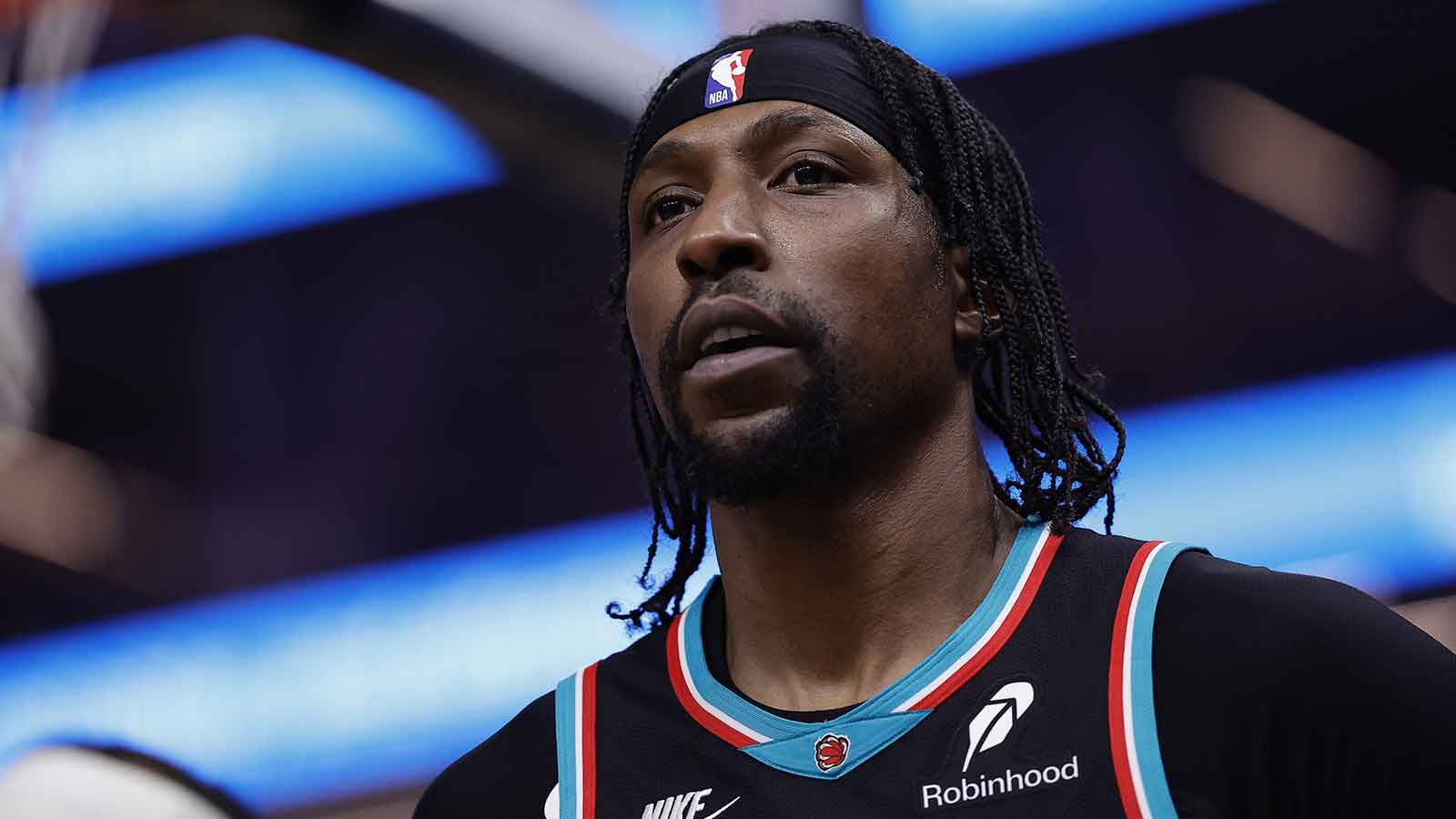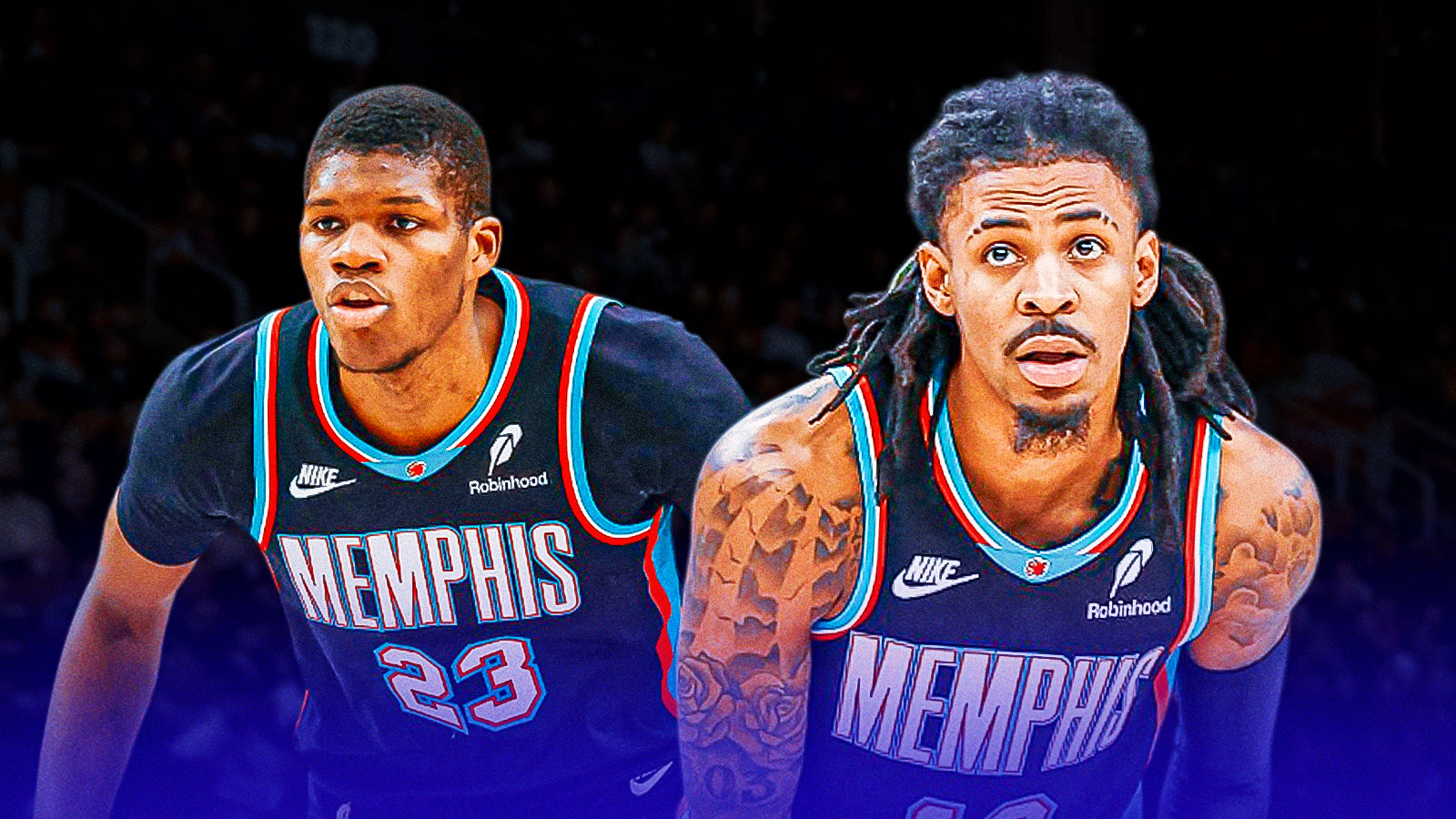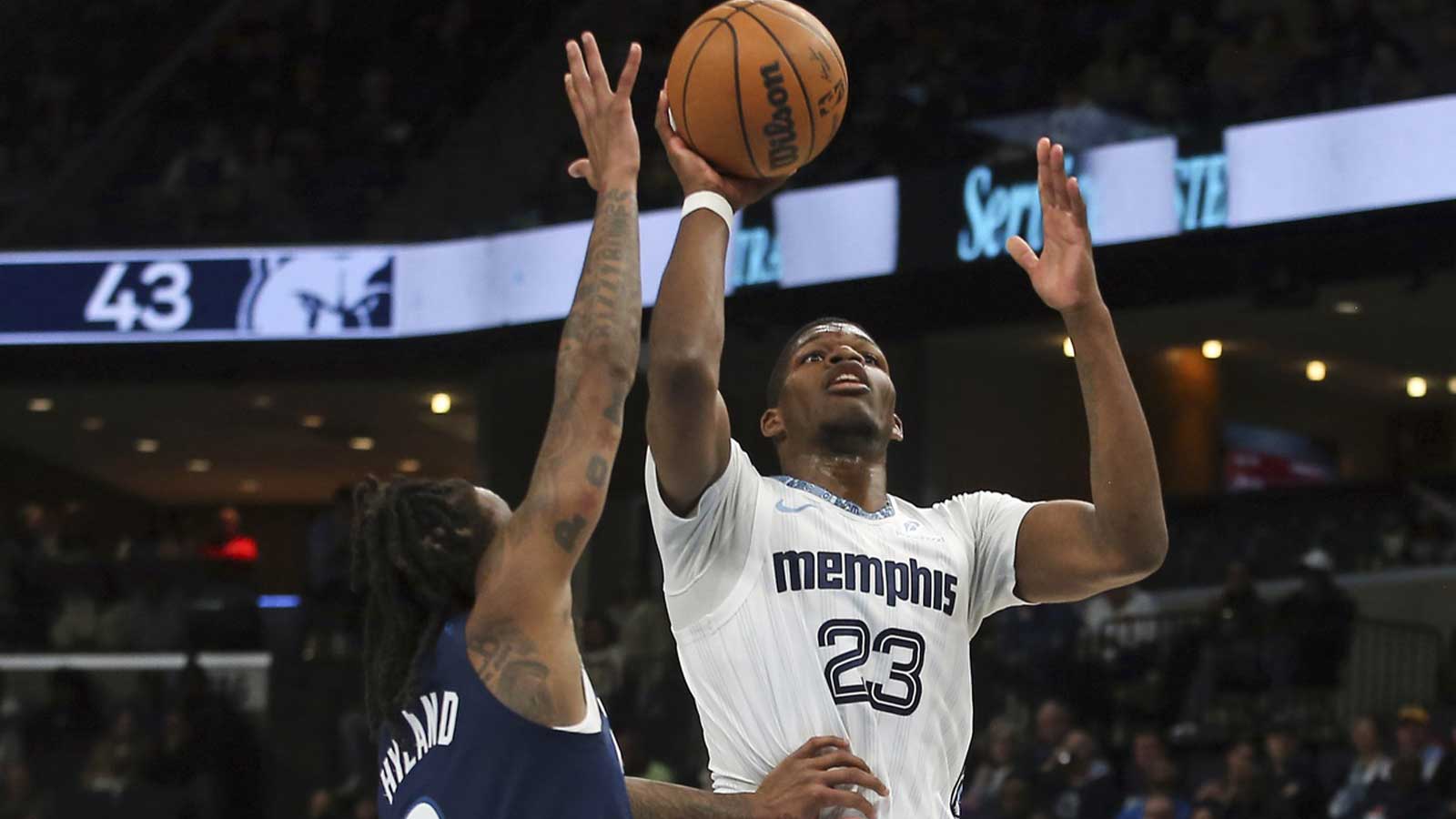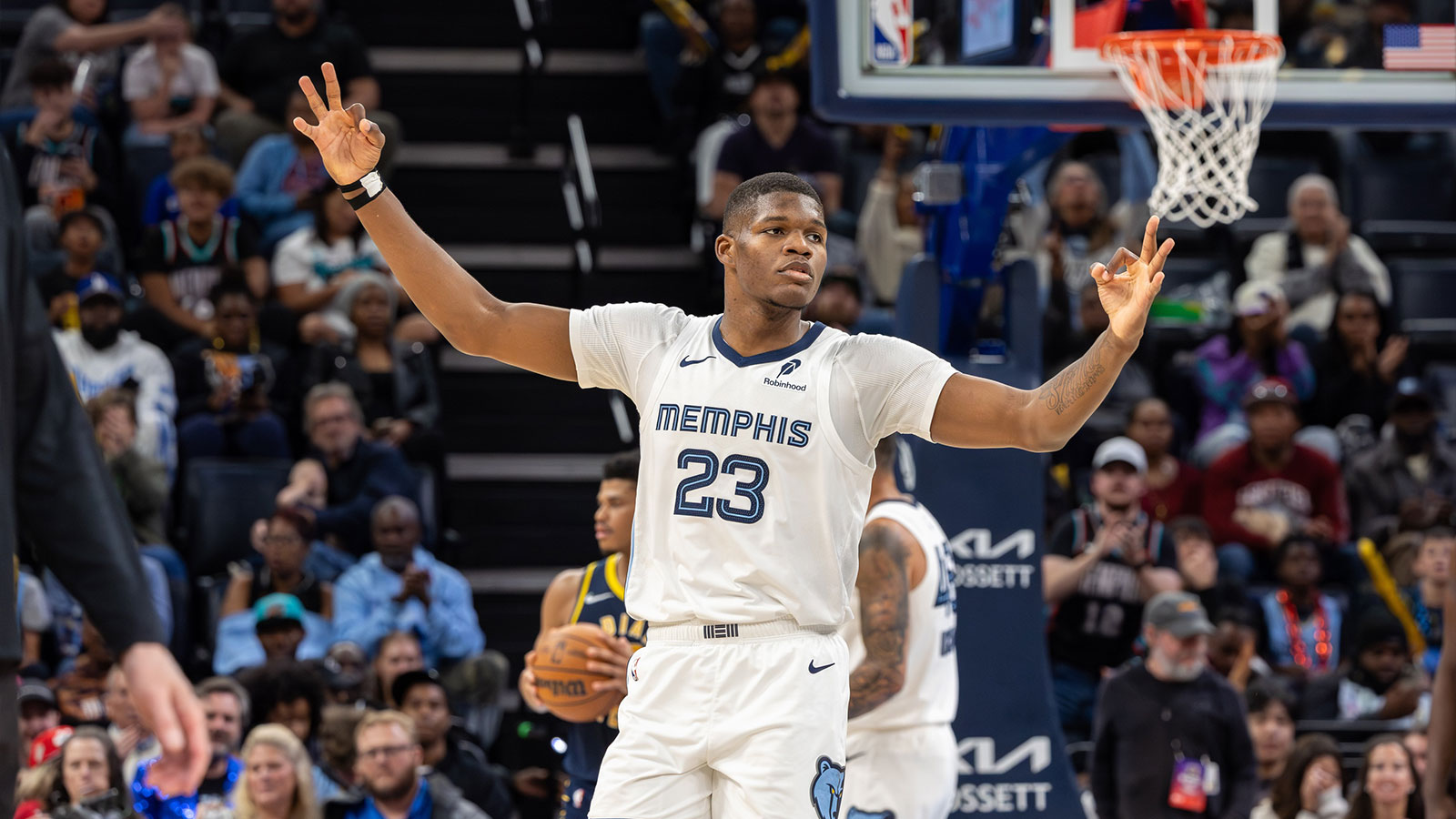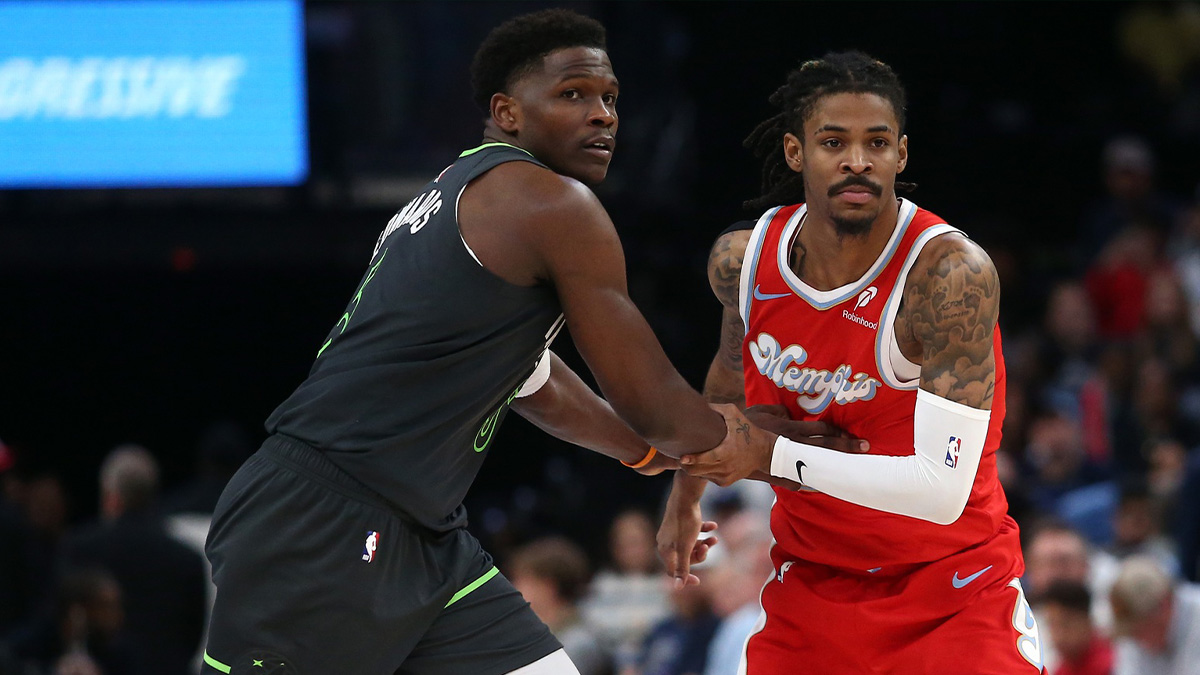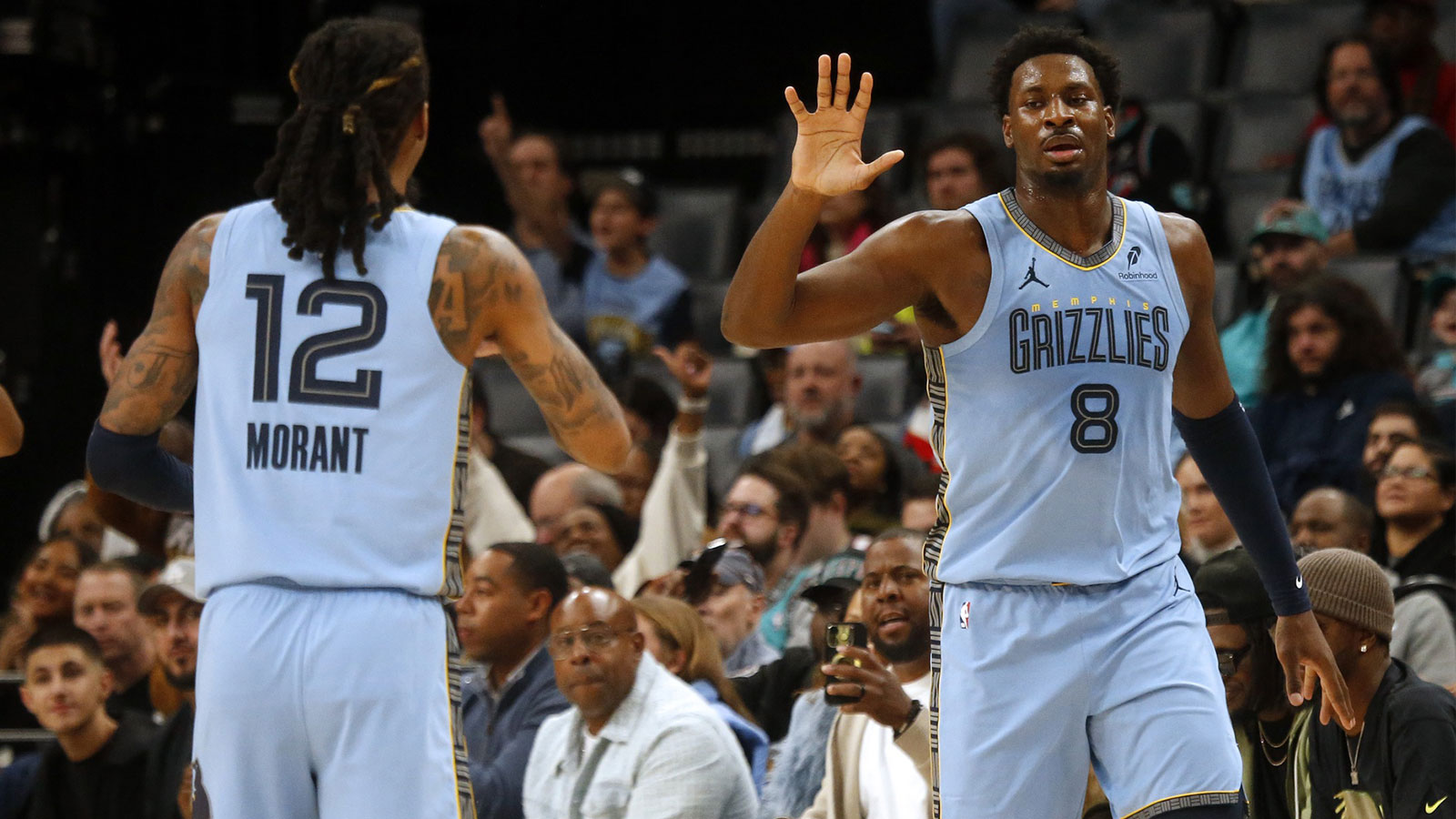In a league increasingly zigging toward dominant perimeter play and switch-everything defense, the Memphis Grizzlies zagged in the 2024 NBA Draft. EVP/GM Zach Kleiman bet that Zach Edey’s unparalleled collegiate dominance and gargantuan size could translate into a transformative NBA skill set next to Ja Morant and Jaren Jackson Jr. However, with a unique pick comes unique scrutiny. Kel'el Ware (15th), Jared McCain (16th), Tristan da Silva (18th), and Yves Missi (21st) were all on the board and looked decent last season after all.
Following up on an All-Rookie Team campaign with a second banger and not a sophomore slump will be one of the most followed stories in Memphis going into training camp. Averaging 9.2 points, 8.3 rebounds, 1.3 blocks, and an assist per game (66 appearances), Edey contributed more often than not but was not exactly convincing last season. Mobility and long-term fit with the Grizzlies are still question marks, especially after an offseason ankle surgery.
For both the Grizzlies and the Canadian to silence the early “lowkey bust” whispers, a clear, measurable path for success in his second season must be established. The 2025-26 NBA season will not be about All-Star appearances, but about proving Edey can be a reliable, impactful winner on a team with championship aspirations.
Zach Edey's imperatives
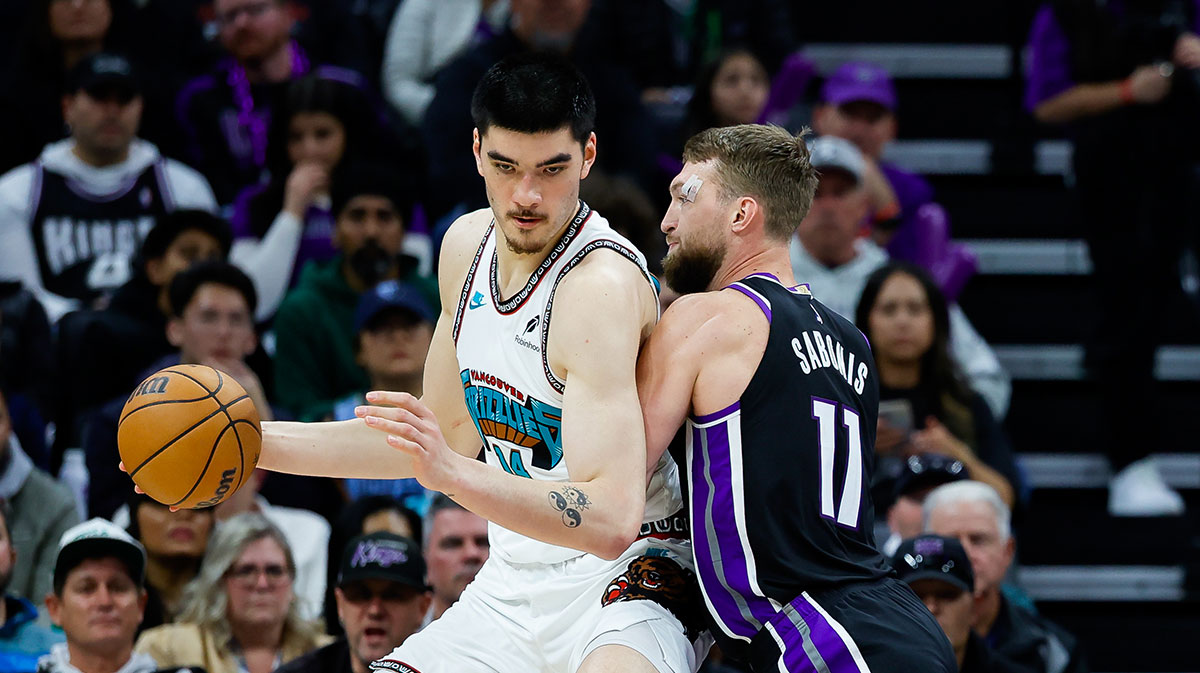
Availability is the most crucial, simple, yet non-negotiable factor; Edey must play at least 65 games. For a player standing 7-foot-4, the immense physical toll is the first and most important hurdle. Centers of his size historically struggle with injuries, and any extended absence could fuel skepticism about his ability to handle an 82-game NBA schedule year after year.
Injuries are often a matter of luck, but the Grizzlies should have had a physical conditioning plan before the 2024 NBA Draft. Missing significant time would immediately fuel the narrative that his body cannot handle the professional grind and that the front office has run out of ideas. With health assumed, Edey’s on-court performance must show clear, quantifiable improvement. Edey's rookie season (15.5 points, 13.9 rebounds, 2.2 turnovers, and 4.7 personal fouls per 36 minutes) provided a baseline; his sophomore campaign needs to show growth.
Benchmarks for offensive growth start at points scored. Buckets matter most in a make-or-miss league after all. Edey needs minutes as well. Taylor Jenkins used the big man 20.6 minutes per night; Tuomas Iisalo upped that to 27.8 minutes to close out the regular season's last eight games, then 32.4 minutes per game in the NBA Play-In Tournament. The Oklahoma City Thunder kept Edey (27 MPG) in check through foul trouble and mismatches once the NBA Playoffs started.
Edey’s points per-36 must jump to the 18-22 range to keep Iisalo's trust through next June. This is not about more shots either, but better efficiency. His field goal percentage (58%) must remain elite, but improvement hinges on getting to the free-throw line and converting at a higher clip than his current (70.9%) rate. Demonstrating expanded offensive versatility beyond just rim-running and put-backs starts with better positioning, improved hands around the basket, and possibly the development of a short-range jump shot.
Grizzlies giving green light
The Grizzlies will encourage Edey to put up as many of those uncomfortable shots as possible through the preseason. Misses do not matter as Memphis was second in rebounding last season. While points do matter, dominating on the glass is the best way for Edey (6th overall in boxouts per game) to provide immediate, undeniable value. Elite centers typically hover around 15 rebounds per 36 minutes. Edey's 21-rebound performance against the Detroit Pistons, which set a franchise rookie record, showed his ceiling in this area.
Perhaps most critically, Edey must address his foul trouble and turnover issues. His rookie debut was emblematic of early struggles, such as fouling out in just 15 minutes against the Utah Jazz. Edey's tendency to pick up quick fouls limited his impact throughout the season, including four fouls in 14 minutes in Boston. The target should be reducing personal fouls to fewer than 5.5 per 36 minutes while keeping turnovers under 2.5 per 36 minutes. This improvement would signal better court awareness and defensive positioning, essential traits for a player expected to anchor Memphis's interior defense.
Postseason spotlights will shine on the defensive limitations. Can Edey survive in space against elite guards in pick-and-roll actions? Or will he be hunted and played off the floor, as traditional centers often are? The Grizzlies don’t need him to be a lockdown perimeter defender, but they need him to be passable. This means using his wingspan to contest shots without fouling, understanding defensive schemes, and providing an intimidating rim-protecting presence.
Conversely, the NBA Playoffs are where Edey's offensive value could skyrocket. In a grinding, half-court series, an ability to command double teams, score efficiently in the paint, and create second-chance opportunities is a weapon few teams can counter. Tuomas Iisalo must design defensive schemes that protect Edey in space, perhaps employing more drop coverage and using Jaren Jackson Jr.’s versatility to complement him. Offensively, they must leverage his elite screening and rolling ability to create open looks for Ja Morant, Jaylen Wells, and Santi Aldama.
The whispers of “bust” are loudest for players who fail to adapt to the NBA. For Zach Edey and the Grizzlies, the blueprint to silence them is clear: prove his durability (65+ games), show marked statistical improvement in efficiency and limiting mistakes, and, most importantly, be ready to contribute meaningfully when the bright lights of the NBA Playoffs arrive. If the Canadian can do that, the narrative will swiftly shift from “project” to “piece of the core” on Beale Street.

